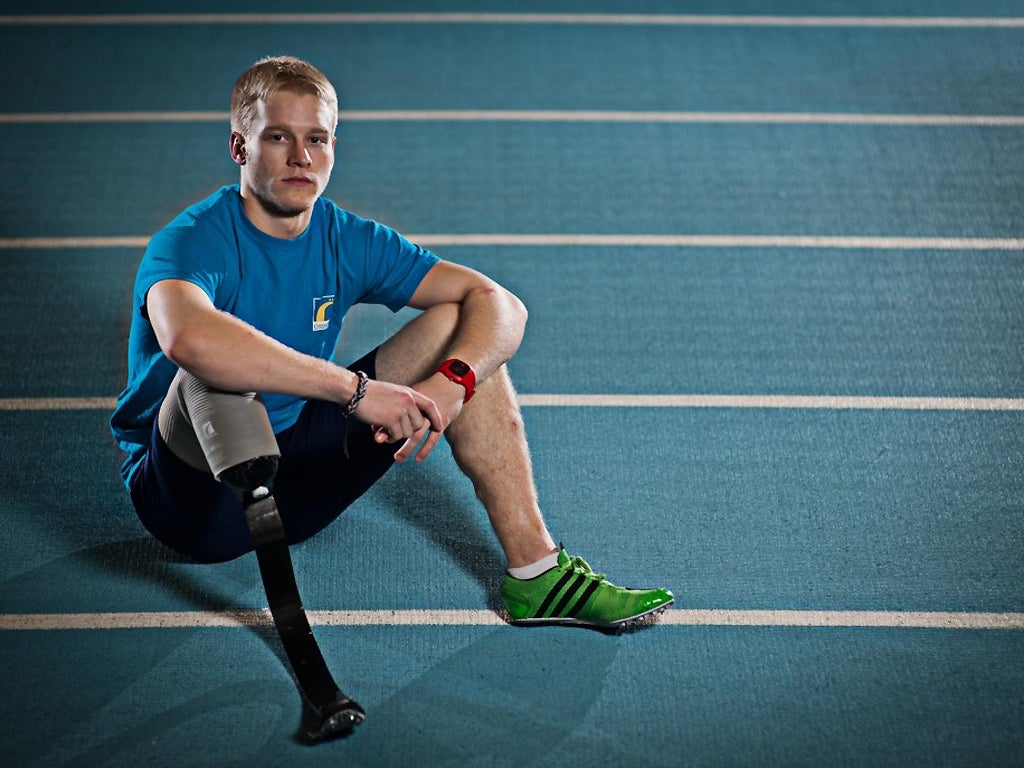
In one respect at least, Jonnie Peacock, has yet to catch up with Oscar Pistorius. “No, I haven’t managed to have a chat with Oscar since then,” he says. “It’ll be interesting to see what he thinks about me now.”
It will indeed. Pistorius might have made history and global headlines earlier this month by becoming the first double amputee to compete in an Olympic Games, but Peacock is the fastest amputee in history.
Running as a guest at the US Paralympic Trials at the University of Indiana on 30 June, the British Blade Runner clocked a stunning 10.85sec in the 100m. In doing so, the 19-year-old from Cambridge broke the world record for the T44 single amputee category, held by Marlon Shirley of the USA. His time was also 0.06sec quicker than the T43 double amputee world record set in 2007 by Pistorius.
The pair are scheduled to meet in what promises to be one of the highlights of the London Paralympics – the combined T43 and T44 100m. “I’d like to think that we’re still friends,” Peacock says. “I still respect Oscar. I still look up to him as an athlete.
“But when it comes to race day, I’ve got to go out on the track knowing that I’m capable of going faster than he is. I know that I can go faster than 10.85sec. I’m capable of a lot better than that and I’m hoping that I’m going to go out and prove that.”
Peacock will certainly start as the man to beat. In Indiana he finished four places and 0.32sec ahead of Jerome Singleton, the American who proclaimed himself “the fastest amputee on the planet” following his victory at the world championships in Christchurch, New Zealand, last year.
Peacock lost his right leg below the knee after contracting meningococcal septicaemia at the age of five. Four years ago he attended a British Paralympic Association talent identification day at London’s Mile End Stadium, trying out in wheelchair tennis, pistol shooting and the 60m sprint.
His natural speed was immediately apparent and for the past 12 months he has been training at the Lee Valley Athletics Centre in north London under the direction of one of the world’s leading sprint authorities.
The American coach Dan Pfaff guided Canadian Donovan Bailey to the Olympic 100m title in Atlanta in 1996. He has an eclectic group of athletes under his charge at Lee Valley – the UK Athletics National Performance Centre.
They include Goldie Sayers and Steve Lewis, who have broken British records in the javelin and pole vault this year, and Rhys Williams, who won the European 400m hurdles title in June. There is also a new Olympic gold medallist, long jumper Greg Rutherford.
“I’ve been in that group just under a year now,” Peacock says. “Greg is fast. I do some work with him over 30m. It was absolutely brilliant when he won the Olympic final. It was really emotional for me just seeing him do it. I was so happy for what he achieved. He deserves it.”
Join our commenting forum
Join thought-provoking conversations, follow other Independent readers and see their replies
Comments